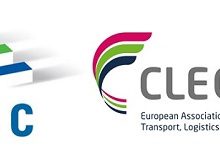
Mr Denis Choumert, President of the European Shippers’ Council, noted:
“The lack of vessel capacity and container shortages, partly caused by hundreds of thousands of containers stranded in US logistics chains, cannot alone explain the liners’ shortcomings. Customers are righteously irked that liners have been taking advantage of the capacity crunch to increase revenues much beyond their costs.” He continued: “Ongoing service unreliability, coupled with the record profits of shipping companies at times of crisis, clearly depicts a seriously disrupted market and demonstrates that carriers have been passing tremendous hikes on spot rates, imposing heavy surcharges above the fixed-term contractual rates.”
Mr Willem van der Schalk, President of CLECAT noted:
“Further frustration comes from the fact that we continue to be obliged to work under a responsive emergency planning mode to adapt to the very short carrier notices of equipment and slot availability, multiple container roll-overs, and numerous additional surcharges. The costs for the freight forwarding industry are huge: they range from the re-booking of shipments to sometimes even losing customers, because there is simply no service made available by carriers.”
European shippers and forwarders call on liner carriers to put an end to the present situation and to return to a situation whereby contractual agreements are respected, as further supply chain delays may risk the speed of the post-pandemic recovery of the European economy. Coming out of the crisis will need cooperation and good will from all the stakeholders. ESC and CLECAT, therefore, call on all parties in the supply chain to work together to ensure that the maritime supply chain becomes more reliable, predictable, and resilient.
Liner shipping companies benefit from special legal privileges through the Consortia Block Exemption Regulation, which has been renewed in April this year, to the dissatisfaction of the customers of liner services. The European Commission has granted and extended this exemption from normal competition rules several times, as it believes that customers benefit from efficiency gains, achieved through coordinated capacity management by the members of a consortia. However, this is not the case today. Such privileges are now excessive as they allow carriers to use tools to manipulate the market.
Whereas the US Federal Maritime Commission stepped up its scrutiny of liner activity this week, European industry is perplexed that the European Commission has not responded in any way to the current crisis. ESC and CLECAT are convinced that the ‘new normal’ will need a better monitoring of the liner shipping activities and a new EU policy framework, which would benefit Europe’s economy and its citizens.
